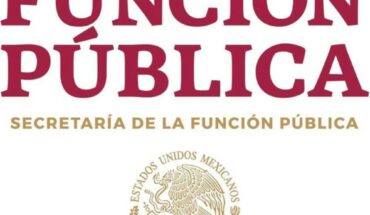
I’m exempt.
President of the Republic Sebastián Piñera Echeñique
Santiago
From my consideration:
I cordially greet you, hoping that this new year will allow us to face and endure, in the best possible way this global pandemic, which has tested us in all our areas of personal and community life.
From my role as rector of the southernmost, most extreme and isolated State Higher Education Institution in our country, I consider it necessary to explain to you the implication for our region that some current powers held by the Intendant are not transferred to the future Governor or the Regional Presidential Delegate. This will prevent us from continuing to be aware of the preferred tax, customs and promotion statutes that our region feeds on and which bring significant benefits for its development. Several of the clauses in these regulatory bodies are supposed to be impractical. Currently, the internal government of each region, is in the possession of the Regional Intendent, as representative of the President of the Republic in the territory, supported by the Internal Government Service of which he is his superior in the area. On the other hand, the superior administration of the region is in the hands of the Regional Government, composed of the Regional Intendent as its executive body, in charge of the Regional Government Service, where the Regional Council is joined, monitoring the work of the High Regional Authority.
On the occasion of the forthcoming elections, the representative of the President of the Republic and Superior of the Internal Government Service in the region shall be appointed Regional Presidential Delegate, while the executive body of the Regional Government and head of the respective service shall be of popular choice, under the name of Regional Governor. Thus, the square of Regional Intendent, currently in charge of two public services, disappears definitively, creating two new authorities that assume such headquarters: one designated and the other by popular choice.
Without prejudice to the foregoing, other rules also provide the Regional Intendent with functions and powers in the knowledge of special, tax, customs and promotion regimes, as seen in the functional deconcentration enshrined in Laws Nos. 18.392 and 19.149, in the law contained in Article 7 of Law No. 20.655; D.F.L. No. 2, 2001 and No. 15 of 1981 of the Ministry of Finance, as well as in the delegation granted in Supreme Decree of Finance No. 275 of 1977 on the Punta Arenas Free Zone, a problem that would cover the Magellan and Chilean Antarctic regions; Aysén del General Carlos Ibáñez del Campo, Los Lagos, Tarapacá, and Arica and Parinacota, who attended to the delivery of the powers referred to by functional deconcentration by law, or through a delegation in the case of the Punta Arenas Free Zone, no body other than the Regional Intendent has the competence to resolve the matters entrusted by each respective rule , within the meaning of the preventions carried out by Articles 6 and 7 of the Basic Charter.
The problem that arises then, is that once the Place de Intendente Regional has disappeared, there is no successor to continue with the knowledge of the tax, customs and promotion statutes already mentioned, which implies that several of the clauses of these regulatory bodies will be impractical.
It is not necessarily necessary to amend the constitutional organic law of Government and Regional Administration, which as such requires a special quorum, but simply, a law could be issued issuing mentions to the “Regional Intendent” by “Regional Governor”, referred to in Laws Nos. 18.392 and 19.149, Article 5 of D.F.L. No. 2 of 2001 of the Ministry of Finance, Article 2 of the Law contained in Article Seventh of Law No. 20.655 and D.F.L. No. 15 , 1981, of the Ministry of Finance; in addition to functionally deconcentrating the concession of the Punta Arenas Free Zone in that territorial authority, by means of a new clause to D.F.L. No. 2, already indicated.
Finally, I would like to inform you that since our Editorial UMAG, we have recently published a book referring to the Navarino Law, a text that also contains background and arguments that could contribute to the generation of a law that allows us to reverse the regional situation described above. In addition, the article published in the CEP is annexed the University of Chile, which deals with this issue.
Without another individual, hoping that this regional concern will be shared at the Central level and our institutional suggestions considered in a future law, is carefully dismissed,
Dr. Juan Oyarzo Pérez
Rector
Magellan University





